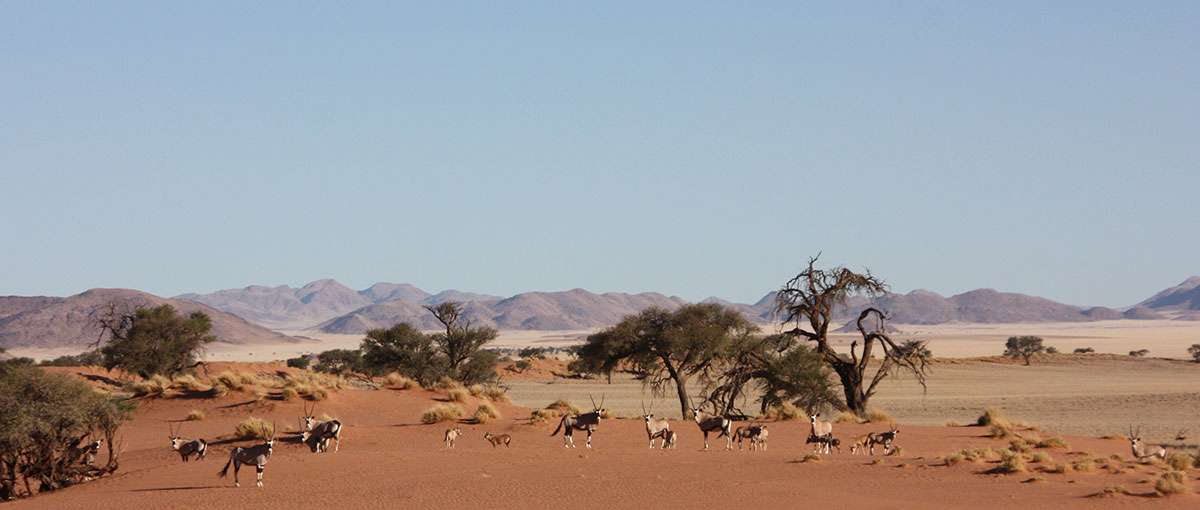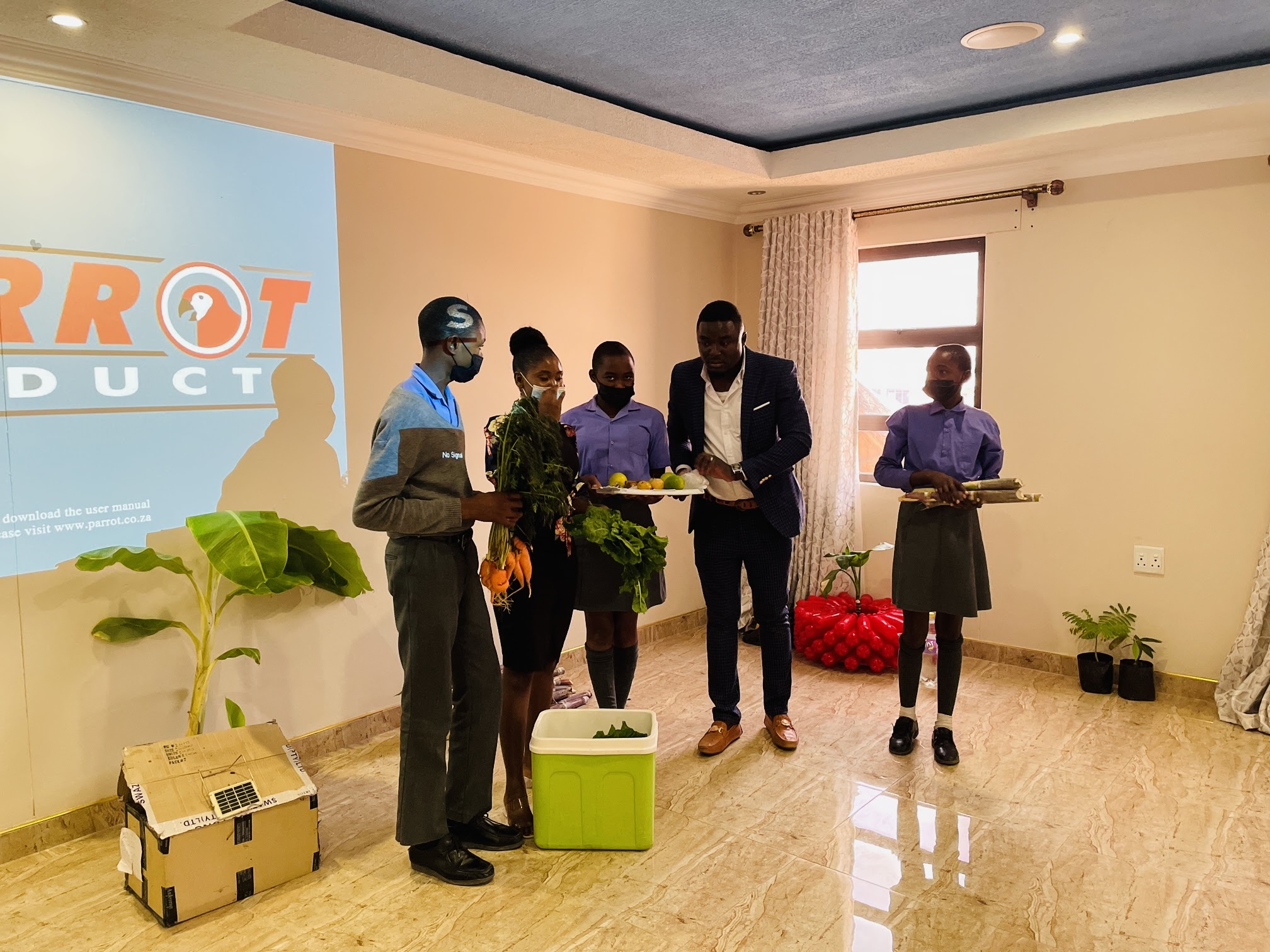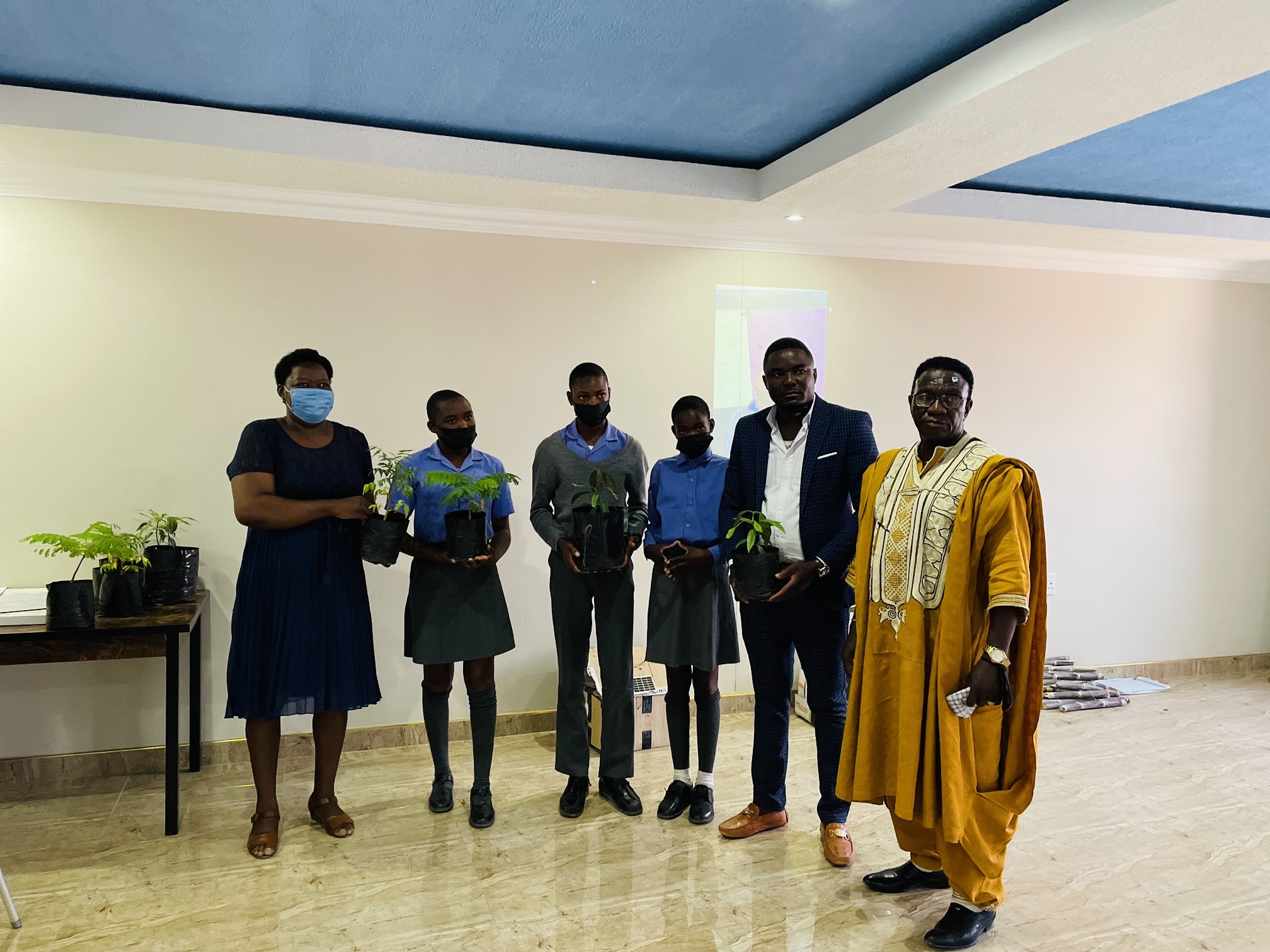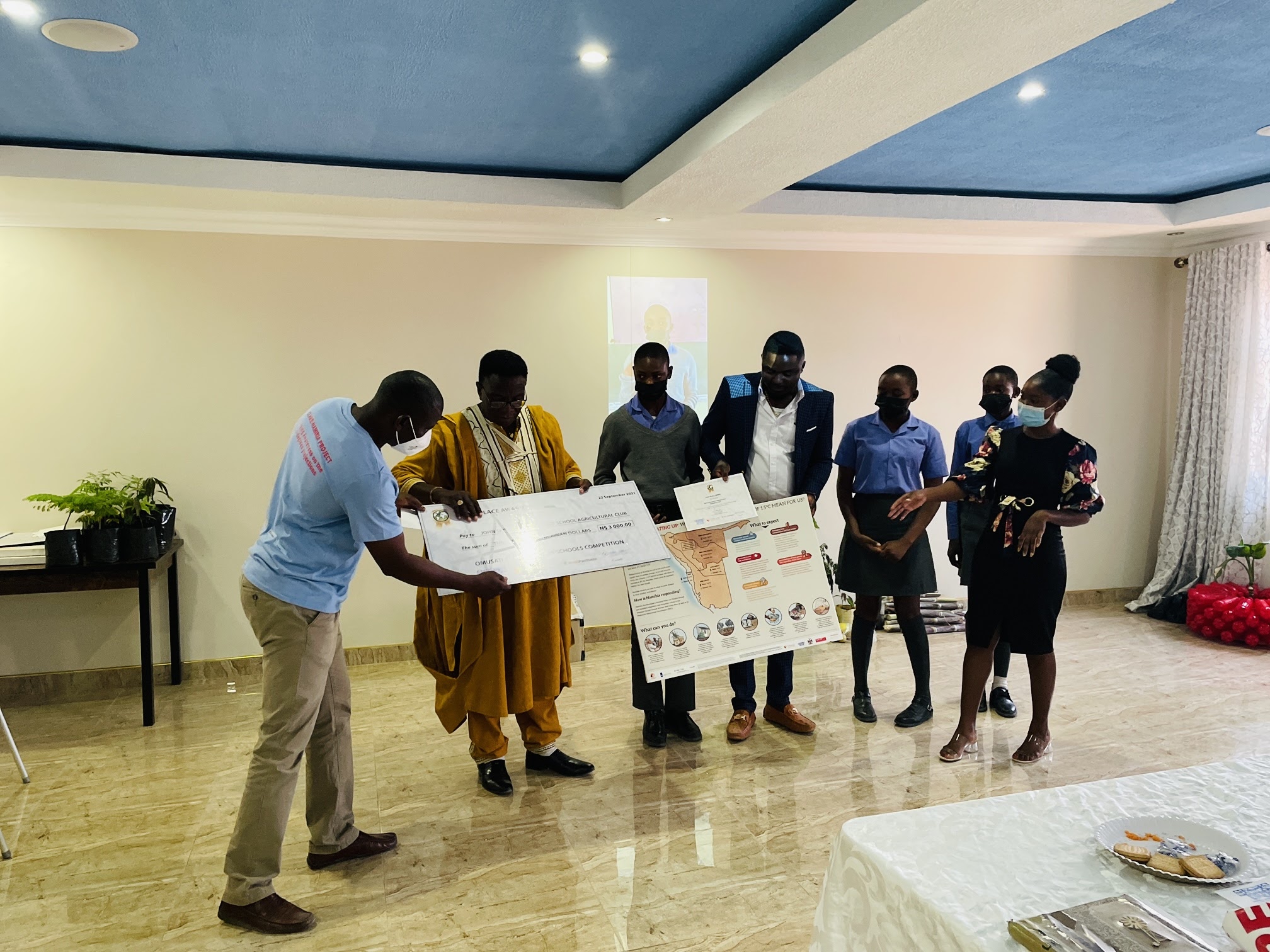For the past few decades, climate change has been making headlines all over the world. Developing countries such as Namibia are especially vulnerable to the effects of climate change, firstly due to our location on the globe that has an influence on our climate and secondly due to our low adaptive capacity as a nation. With the recent alarming 1.5 and 2-degree Celsius projections by the IPCC, countries have been trying to raise awareness about the effects of climate change and how we can better mitigate it or adapt to the changes that it causes.
As an intern at Desert research foundation of Namibia (DRFN) under the CLARE-Namibia project, I was fortunate enough to be part of the project's initiative to raise awareness on the 1.5 and 2-degree Celsius projections on climate change in Namibia. This initiative was a combined effort by DFRN, implementing partners University of Namibia (UNAM), Ministry of Environment, Forestry and Tourism (MEFT) and ReosPartners that is fully funded by International Development Research Centre (IDRC).
It was an exciting opportunity for me because I got to spearhead this initiative and it was a great learning process. The initiative involved high school learners from the Omusati region in northern Namibia. The young generation is our current and future environmental custodians and need to be sensitized on matters such as climate change as soon as possible, we need action NOW!
So, in August last year the CLARE-Namibia project launched a competition inviting schools in the Omusati Region with Life Science and Agricultural clubs to participate in the call for Climate Action Competition. The competition was advertised on the DRFN Facebook page and website on the 5th of August 2021 and applications ended on the 5th of September 2021. However, some schools were not able to access this, and an alternative was made by sending an email to the Directorate of Education in the Omusati region to forward it to each school within the region. Additionally, the project team shared whereabouts of the competition on their personal social media platforms to spread the word. This competition was aimed at sensitizing learners to take climate action and educate their communities in different practical ways.
WINNERS!! 15 entries were received in the the range of categories which were available. John Shekudja Combined School emerged victorious in first position and they won in the category of smart agriculture, winning N$ 3000.00. Niita Yiitula Junior Secondary School came in second place in the category renewable energy, winning N$ 2000.00 and in third place came Shaanika Nashilongo Secondary School category solid waste management and winning a price of N$ 1000.00. As small as the prices seem we believe that it served as a motivation for the learners and that one small action can change the world! For their outstanding work in the school competition, the schools received participation certificates, T-shirts, canvases (speaking to climate change), fruit tree seedlings from Development aid from people to people (DAPP) and vegetables from Nyango vegetable farm.
Well you might all be wondering as to what inspired these learners to participate, wait no more let us get into it :-)
John Shekudja combined school is situated in Okalongo circuit, Omusati region. The school has a very big smart garden where different vegetables and crops are grown. The club runs the garden, which is mainly comprised of learners with agriculture as a subject. Mr. Shilikola, the agriculture teacher who's also in charge of overseeing the garden, felt he needed to come up with something practical that learners could learn outside the class. He emphasized that it is another way of tackling climate change by ensuring food security through the school garden. He further alluded given the harsh climatic conditions, teachers need to find a way to find solutions that will help fight climate change. "Trees are carbon sinks that help in regulating the atmosphere by providing oxygen which we breathe in", elaborates a learner from the agricultural club.
Niita Yiitula Junior Secondary School is situated in Okahao circuit, Omusati region. Weckson Shikalepo who represented the school is a 14-year-old learner in grade 8. He received N$ 1000.00 and the other N$1000.00 went to the school’s account. Weckson constructed a house from recyclable materials such as boxes, an old phone battery, an old solar, and an old bulb. By fixing all these recycled materials together he produced a lighting house which he uses as a source of electricity to study at night as they do not have electricity at home. Furthermore, he explained what inspired him. He mainly joined due to the prices as he wanted to be able to buy himself some basic school needs such as stationery and school shoes, as his shoes were way too old to last him another year. Weckson stated that it was through this competition he got an opportunity to showcase his creative skills as he likes fixing things by nature and has a dream of becoming an electrician in the near future. -If this does not serve as an inspiration then I do not know what does.
Learners from Shaanika Nashilongo secondary school raised awareness on the 1.5-degree projections (raise in temperature), encouraging fellow Namibians to stop littering and to start recycling waste materials to save and conserve the environment. They were inspired as they saw this opportunity as a good initiative to create awareness on climate change issues as well as the idea of a community coming together to tackle climate change issues. As they observed that most of our land is covered by litter, they chose the recycling category. Additionally, they needed to raise awareness about how plastic bottles can be recycled to help the environment and make beautiful flower/plant pots that they can sell and earn an income from.
As much as this initiative was a great experience, not many good experiences are ever without challenges. One of the challenges were that it was not entirely clear what it is that the learners were expected to do. Another challenge is that schools were quite slow at coming on board to participate in the competition and this was a bit saddening because we were hoping that learners would be excited about a competition that raises awareness about real life climate issues happening in our communities. Thirdly, I felt like the duration of the competition was not enough to allow enough schools to join. The most stressful part was where we shared the invitations through the Directorate of Education, and they didn’t share it to the schools. We had to send the invitations through the school principal and kept following up with calls which was a very demanding process. Nonetheless, the competition turned out to be a success.
Overall, as per our view (CLARE-Namibia project team) the Namibian boy and girl child are indeed talented opportunities of this nature should be availed to them in order to support their dreams and fight the effects of climate change in Namibia. It was inspiring to see different innovative ideas presented by the learners with so much support from their teachers. Many learners have the potential and interest in finding solutions to the effects of climate change and with opportunities such as this we can create a better Namibia.
~LET US ALL AIM TO BE CLIMATE WARRIORS, FOR A BETTER NAMIBIA AND FOR A BETTER PLANET EARTH.~
Written by Linda Nanyala







































